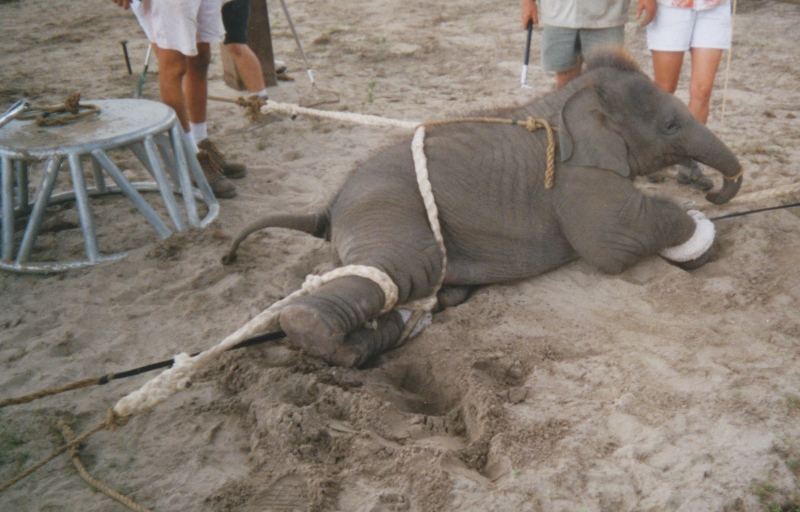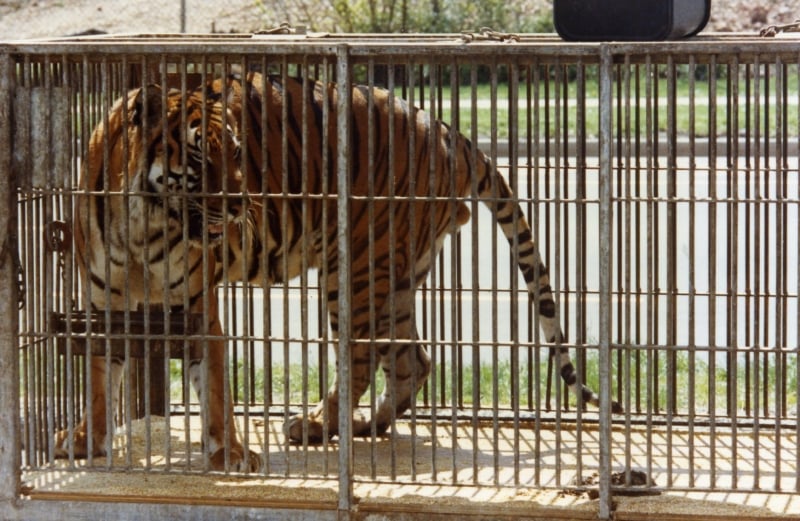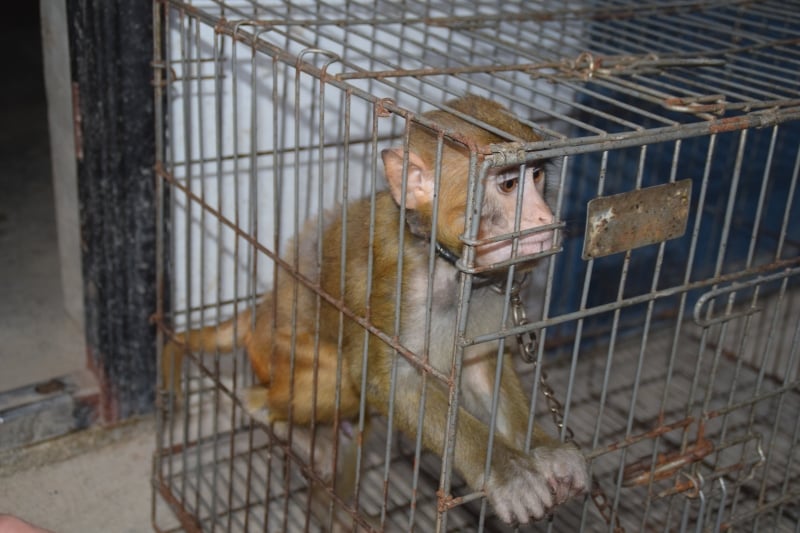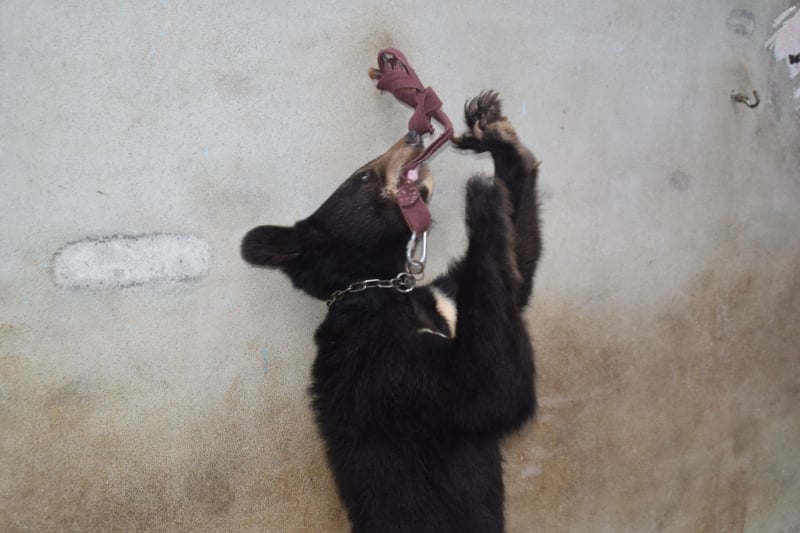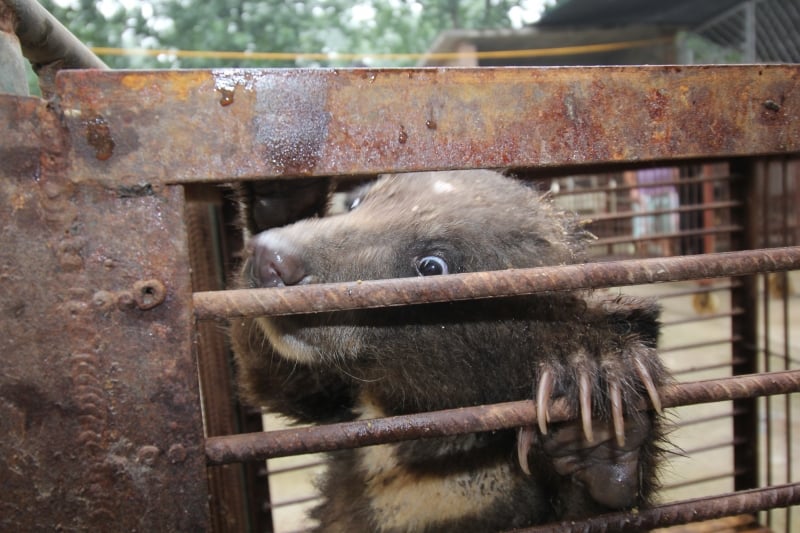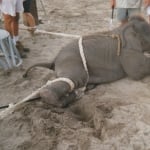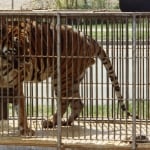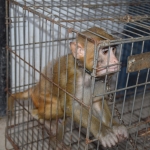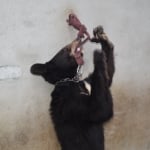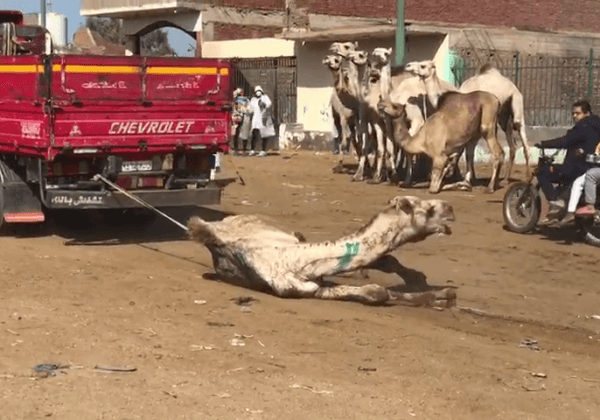Circuses: No Fun for Animals
Anguished ‘Entertainers’
Elephants, primates, tigers, and other animals do not choose to ride bicycles, stand on their heads, balance on balls, or jump through rings of fire. They perform because they’re afraid of what will happen if they don’t.
To force animals to do these meaningless and physically uncomfortable tricks, trainers use whips, tight collars, muzzles, electric prods, bullhooks, and other weapons.
A PETA investigation found critically endangered orangutans forced to perform in confusing and degrading boxing matches and stage shows in Thailand. These kinds of spectacles make a mockery of these intelligent and sensitive animals.
Beaten and Broken
Circuses use physical punishment to terrify animals into performing. Animals are beaten, shocked, and whipped to make them perform tricks that make no sense to them. To make some animals “manageable,” trainers may drug them or remove their teeth and claws, causing acute and chronic pain.
Often, the barbaric abuse begins when the animals are still babies. Young elephants are forcibly removed from their mothers so their spirits can be forever broken.
A Lifetime Behind Bars
Traveling almost year round means that animals are confined to cages or trailers for days at a time in extremely hot and cold weather, often without access to basic necessities such as food, water, and veterinary care. Elephants are chained, and big cats, bears, and primates are confined to cramped and filthy transport cages in which they eat, drink, sleep, defecate, and urinate.
During the short off-season, animals are usually confined to travelling crates, barn stalls, and trucks. The intense imprisonment is a far cry from the lush forests, spacious savannas, and rolling hills where they belong. Deprived of everything that is natural and important to them, many develop neurotic behavior, including obsessive head-bobbing, swaying, and pacing.
Fighting Back
Frustrated by years of beatings, bullhooks, and shackles, some animals snap—with deadly consequences. When tigers, bears, lions, primates, or elephants retaliate against the abuse, trainers cannot protect themselves, let alone the public.
In 1994, an elephant named Tyke killed her trainer and injured 12 spectators before being gunned down while running terrified through the streets of Honolulu. (She was shot almost 100 times.) In Vietnam, an 11-year-old girl was trampled and killed when she tried to feed a chained elephant in a travelling circus. In China, a tiger mauled an 8-year-old girl to death in front of horrified onlookers.
Animal-Free Circuses
As more people become aware of the cruelty involved in forcing animals to perform, circuses that use animals are finding fewer places to set up their big tops. Bolivia, Columbia, Ecuador, Greece, Mexico, Singapore, and many other countries around the world have banned or are in the process of banning wild animal acts. In 2011, China banned circuses in its 300 state-owned zoos. Enforcement of the law is lax, but bans are a critical step in the right direction.
What You Can Do
Never patronize any animal “attraction.” Every ticket purchased supports a cruel industry. Take your friends and family to see only animal-free circuses. If an animal circus comes to town, organize a demonstration to get the word out.

